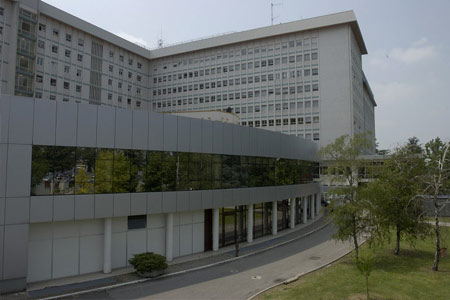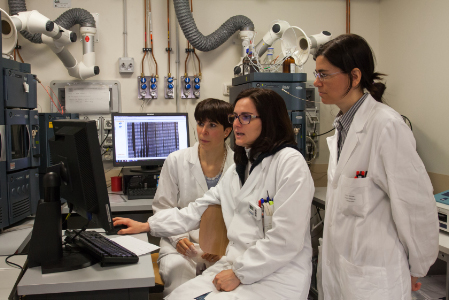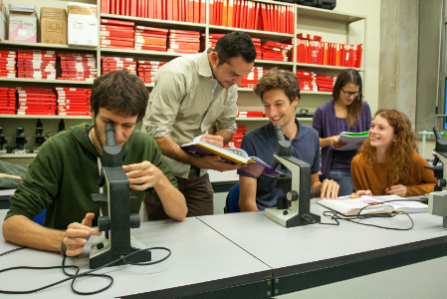Innovative Tools for Cancer Risk Assessment and Early Diagnosis for Pancreatic Cancer
Pancreatic ductal adenocarcinoma has dismal prognosis and is highly chemoresistant. Only 5% of the patients
can be surgically resected and long term survival is directly correlated with tumor size. Early detection is the
only means to substantially impact long-term survival but screening methods are lacking. This proposal aims
at identifying non-invasive biomarkers for its early diagnosis and the screening of populations at high risk of
pancreatic cancer.
This application stems from the background of the applicants and their long standing collaboration. In 2010
they constituted the PANcreas Italia Network (PANIN), led by Prof. Aldo Scarpa, dedicated to translational and
clinical research on pancreatic cancer. PANIN coordinates a bank of normal and neoplastic tissues that will be
expanded throughout the project to fuel the discovery of biomarkers and their validation. In addition, the
Consortium has access to biological materials and information from external epidemiological studies:
European study on chronic pancreas diseases and genetics (Pangen-EU); European Prospective Investigation
into Cancer (EPIC); Italian chronic pancreatitis registry (PANCRO-INFO).
The driving hypothesis is that potential circulating biomarkers may come from three sources: cancer cells,
cancer microenvironment, innate/specific immune cells responding to pancreatic cancer.
The main objectives are: i) identify markers useful for early diagnosis through the investigation of the
dynamic interplay between cancer cells and stromal cells, including local and recruited haemopoietic cells; ii)
identify risk assessment parameters for populations with the potential of developing pancreatic cancer by
defining a characteristic phenotype among members of the high-risk groups, including i) familial pancreatic
cancer; ii) patients with chronic pancreatitis; iii) patients >50 years with new onset diabetes.
The overall plan foresees three phases:
Phase 1. Identification of new bio-markers with the state-of-the-art technology addressing the search for: a.
biomarkers directly released by cancer cells (circulating cancer DNA and RNA, up-regulated/secreted proteins
at early stage of neoplastic transformation, exosomes); b. biomarkers related to innate and/or specific immune
response to pancreatic cancer (antibodies, signalling molecules, bone marrow derived cells); c. biomarkers
released by cancer microenvironment (stroma derived molecules).
Phase 2. Validation of identified markers. Identified markers will be verified first in mouse models and then
in tumor patients (blood, urine, tumor, PANIN lesions). Cross confirmed markers will be monitored in
genetically engineered mouse models during pancreas cancer development to identify those appearing
earliest. The candidate biomarkers will be tested on available biological materials from case-control
prospective studies, from patients with different pancreatic diseases (chronic pancreatitis, benign neoplasm,
etc.) and patients with different cancers. This will evaluate specificity and sensitivity of the bio-markers.
Phase 3. Pilot study. A screening strategy for sporadic pancreatic cancer will be established and tested
starting from year 3. Asymptomatic subjects >50 years will be screened for diabetes and those with new onset
diabetes (first sieve) will be tested for potential biomarker(s) of pancreatic cancer as identified in years 1-2 of
this project (second sieve). This cohort would undergo follow-up evaluation and non invasive imaging to
identify the presence of pancreatic cancer.
The cooperative nature of the proposing group, comprising both scientists and clinicians, assures that all
aspects of this proposal are addressed: from basic research to biomarker discovery; from translational
research to clinical oncology and data analysis. Training of young scientists and clinicians and dissemination
to the general population will also be pursued.







